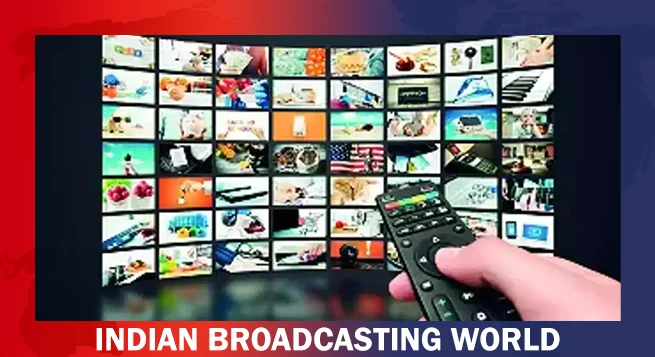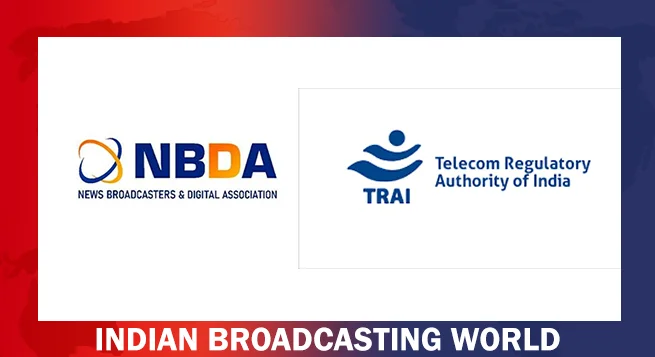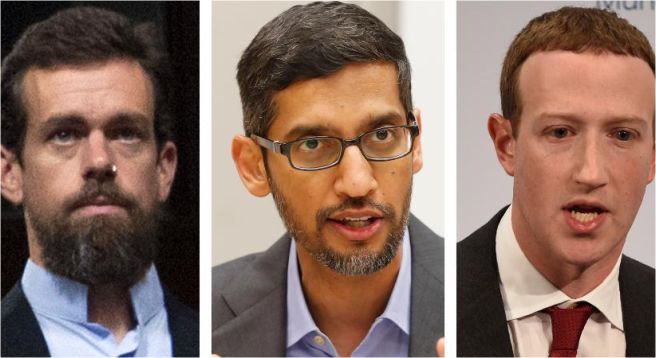The CEOs of social media giants Facebook, Twitter and Google were slated to face a new grilling session by the American Congress on Thursday (US time), one focused on their efforts to prevent their platforms from spreading falsehoods and inciting violence.
That’s been a familiar theme for lawmakers over the past few years. But the pressure is even higher following the January 6, 2021 insurrection at the U.S. Capitol, the rise in COVID vaccine misinformation and united Democratic control of Congress and the White House. The latter could make legislative action more likely, although it remains far from a sure thing, Associated Press reported Thursday.
As malicious conspiracy theories continue to spread, lawmakers are pounding the social media companies over their market dominance, harvesting of user data and practices that some believe actually encourage the spread of engaging but potentially harmful misinformation. Some Republicans have also alleged, without proof, censorship and political bias against conservatives as another reason to rein in the enormous firms.
There’s increasing support in Congress for imposing new curbs on legal protections regarding speech posted on their platforms. Both Republicans and Democrats — including President Joe Biden as a candidate — have called for stripping away some of the protections under so-called Section 230 of a 25-year-old telecommunications law that shields internet companies from liability for what users post.
Facebook CEO Mark Zuckerberg, Twitter chief Jack Dorsey and Google CEO Sundar Pichai — whose company owns YouTube — will testify in a virtual hearing before the House Energy and Commerce Committee.
The session’s title leaves little doubt as to the majority Democrats’ stance: “Disinformation Nation: Social Media’s Role in Promoting Extremism and Misinformation”, the AP dispatch stated.
These executives testified on the subject at several congressional hearings last year, sometimes under threat of subpoena. This time they face tougher dynamics and may be called to account for earlier promises. In a Senate hearing shortly after the election in November, for instance, Zuckerberg and Dorsey gave lawmakers assurances of vigorous action against disinformation.
Former President Donald Trump enjoyed special treatment on Facebook and Twitter until January, despite spreading misinformation, pushing false claims of voting fraud, and promulgating hate. Facebook banned Trump indefinitely a day after rioters egged on by Trump swarmed the Capitol. Twitter soon followed, permanently disabling Trump’s favored bullhorn.
Banning a sitting president from social media was an unprecedented step. Of course, so was Trump’s heavy use of Twitter to lambaste opponents, laud supporters and spread false claims to more than 80 million followers. He was also only the second president to have a social media presence while in office.
Facebook hasn’t yet decided whether it will banish the former president permanently. The company punted that decision to its quasi-independent Oversight Board —- sort of a Supreme Court of Facebook enforcement — that is expected to rule on the matter next month.
TAGS: #USCONGERESS #FACEBOOK #TWITTER #Google
 Delhi HC orders meta to remove deepfake videos of Rajat Sharma
Delhi HC orders meta to remove deepfake videos of Rajat Sharma  Govt. blocked 18 OTT platforms for obscene content in 2024
Govt. blocked 18 OTT platforms for obscene content in 2024  Broadcasting industry resists inclusion under Telecom Act
Broadcasting industry resists inclusion under Telecom Act  DTH viewing going down & a hybrid ecosystem evolving: Dish TV CEO
DTH viewing going down & a hybrid ecosystem evolving: Dish TV CEO  New adventure of detective Feluda debuts on Hoichoi Dec. 20
New adventure of detective Feluda debuts on Hoichoi Dec. 20  ‘Pushpa 2’ breaks records as most watched film of 2024: BookMyShow Report
‘Pushpa 2’ breaks records as most watched film of 2024: BookMyShow Report  Hungama OTT unveils ‘Pyramid’
Hungama OTT unveils ‘Pyramid’  Amazon MX Player to premiere ‘Party Till I Die’ on Dec 24
Amazon MX Player to premiere ‘Party Till I Die’ on Dec 24  aha Tamil launches ‘aha Find’ initiative with ‘Bioscope’
aha Tamil launches ‘aha Find’ initiative with ‘Bioscope’  Netflix India to stream WWE content starting April 2025
Netflix India to stream WWE content starting April 2025 








